Tuesday, September 23, 2014
Monday, September 22, 2014
How to help Abbess Juliana
For those who may want, How to send monetary help to Abbess Juliana in Chile
Regarding sending aid to Abbess Juliana (Hazbun) at her St. John of Kronstadt Convent/Orphanage
near Santiago, Chile:
For any questions to her: Her email address:
abbjuliana @ g mail . com
She is most fluent in Russian,
but she also communicates in English and Spanish, and Arabic.
Rd. Daniel Everiss' question to her:
[Quote]- "PLUS, do let me know, of the safest way/method/address, etc. for
anyone to send you money help!"
Abbess Juliana's Response:
In Christ, Dear Brother Daniel.
I hope you did not LOSE HOPE, waiting to hear back from me.
The problem here, is that the Chileans were having their Independence week.
I
had to go to the Bank to answer your questions. First, of course you
can send my letter to anyone you want to. I have nothing to hide as I
live in the realities of the present day.. Usually, when I was younger,
I would plan to do this and that and go here and there, and sometimes
only one quarter of my plans came to reality, and the others, - three
quarters -NOTHING WORKED.
Bad moods follow, to be honest, but I never raise my voice and I never ever banged any doors.
This is Father Benjamin's [good influence on me].!
The first question in Confession he asks you
Are you at peace with everybody? as
if you say NO! He simply quits. So he wants us to have peace in our
hearts all day long and all night and in the winter and in the summer.
But still we are not saints Do you understand humor?
But what I say about Father Benjamin is true-
Well I found the answer for your second question, this hrimata in Greek, masari in Arabic, dengi in Russian, money in English, plata in Spanish / srebro
in Slavonic is a serious matter., and not humorous. So what I can
suggest is a very long story. And it took all my time to write it down. I
could send a scanner if you want.
Do you have time? have patience?
This is the Bank's address
S.W.I.F.T BECH CL RM
Banco del Estado de Chile
Manqueheue 338
Apoquindo 6095 Santiago Chile
To send masari [ money ] to Abbess Juliana, one needs to send it to the saving's account in the name of:
Julia George Hazbun Zarzar
Camino el Cajon 18060 el Arrayan
Fono 223215334
Account number is: 33861283173
One
thing I would suggest: is to collect a sizable sum of money in one
specific place, and then to send it all at once, as that is easier than
to deposit: $ 5,10 or 100 dollars, as for each donation, no matter what the sum, [ large or small] each time the bank will call me to tell me the good news!
Once
a lady, Katya Ogden used to collect for us, I am quilty, for not giving
her these numbers. I still have her e-mail if you will want to talk to
her. She is a very pious person and her husband is Gregor and their
child, is Alexandra.
Enough of chattering today, as it is raining.
I
think I will stop now. I am waiting for the rain to stop, so I can go
to my cell. I love winter., but have to hurry, as we also live in the
mountains, and as the Computer is uphill, and I live down near the
gate and the kitchen.
Have a good night.
Can someone translate this sentence for you?....as it is in Russian?
"Отъ многоглаголанiя не избежишь греха"
(Human translator's note: This
translates literally as: From speaking much, you will not escape sin.
многоглаголанiя may also be translated as “loquacity” or
“talkativeness”).
.....and this is the TRUE Abbess Juliana!
[Abbjuliana]
==============================
These two older links for St. John of Kronstadt's Convent/Orphanage , show past people, buildings, and events.A big fire destroyed a lot there, some years back.
Sticky
• Patronal Monastery Feast in Egorovka, Ukraine, of The Nativity of the Theotokos
PHOTO REPORT (44 photos)
Visit of Vladyka Archbishop Andronik to the Annunciation Monastery in Australia
article found on:http://internetsobor.org
Visit of Archbishop Andronicus to the Annunciation Monastery in Australia (PHOTOS)
Author: Metropolitan Agafangel incl. September 22, 2014. Posted in ROCOR (Views: 22)On Saturday 7/20 September, on the feast of the Nativity of the Mother of God, Archbishop Andronicus served in the Annunciation Monastery.
Vladyka arrived on Friday afternoon to get acquainted with the monastery, taking part in the evening service and meal.
In
his homily, Bishop Andronicus reminded us of the need to remain
faithful to the Holy Orthodox Church in our times of trouble. The bishop
also spoke of the need to distance ourselves from the world and find
spiritual nourishment in the monasteries for the salvation of our souls.
After the Liturgy, Bishop Andronicus blessed the new cross and dome on the gate, at the entrance to the monastery.
This work was by the master-carpenter and patron, Dmitry Kichakovym.
This work was by the master-carpenter and patron, Dmitry Kichakovym.

Sunday, September 21, 2014
Stickies
• Not everyone in Russia is fooled by Putin's lies about his dirty little war against Ukraine-
http://www.bbc.com/news/world-europe-29300213
• As Atheists and other anti-Christians try to make America a Godless atheist country: A small victory for the Ten Commandments
And this battle is not a small one, but the cosmic ageless universal war between God
and the Devil, Good and Evil.
The Devil and his servants, especially hate the Holy Cross, the very instrument of their defeat, and the very name, JESUS CHRIST, the Saviour of the World.
Under the excuse of 'tolerance' and the false claim, of 'separation of church and state', the leftist anti-Christian forces in this 'progressive/modern' country, are struggling to use our constitution and governmental and our heavily leftist-activist court system, to force... the removal of crosses, or of any Christian religious representations, NATIVITY SCENES!, and any public & historical markers of Christianity, out of our national life, -our schools, and actually in all places...even in or on the top of churches, and from cemeteries (!)...even from military cemeteries!
Among this crowd, are militant anti-Christian Jews, and now the huge influx into America of Moslems, ( who world-wide, have been oppressing and murdering Christians since Muhammad created their foul evil religion), and the various stripes of deluded outright Atheists.
These un-American alien-cultured people are destroying our traditional NATIVE Christian American values and culture, while the majority of the population...do not protest, again, for 'toleration sake'.
God does not bless the nation that does not bless Him.
"Blessed is that nation whose God is the Lord!"
http://www.foxnews.com/us/2014/09/21/oklahoma-judge-dismisses-ten-commandments-lawsuit/
Another example of how un-Orthodox is the MP
article found on: < http://internetsobor.org>
Because, here by photographic evidence, the 'holy patriarch' is baptizing a baby, not by Orthodox full triple immersion, but by the Latin style pouring.This practice is apparently now normal in many parts of the MP, even for adults.
Also, since they teach now, that: 'Every Russian is Orthodox by birth', [ i.e. 'by blood'???, automatically?not what the Holy Fathers ever taught or our Orthodox Holy Tradition teaches] no pre-baptismal/chrismation catechism/instruction in the Orthodox Christian Faith, is offered for many adults. And too, many are given communion without baptism, and without confession also.And also by this photo, it is clear that this baptismal vessel , is plenty deep enough, for infant triple full immersion.
Perhaps, 'His Holiness' does not want to get his hands or arms wet?...with a messy Orthodox style old fashioned outdated, infant baptism.
And too, we have viewed many other typical MP baptismal photos, of their adult baptisms, which they usually do by, pouring too....with the newly being baptized, standing [ i.e. they are obviously healthy enough to be submersed, Orthodox style, under a stream or in an indoor deep pool] with their heads bent, in front of a small vessel, with the MP priest pouring water over their heads, Latin style.
Patriarch Kirill as the destroyer of the Tradition of the Orthodox Church (PHOTO)
Author: i-sobor incl. September 21, 2014. Published in the Moscow Patriarchate (Views: 26)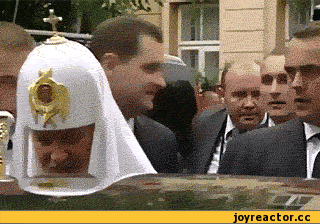 Abbot Peter Eremeyev
: Touched to the quick. The Holy Sacrament of Baptism is my most
favorite sacrament -in the temple of St. Innocent at the Khabarovsk
Seminary.
Abbot Peter Eremeyev
: Touched to the quick. The Holy Sacrament of Baptism is my most
favorite sacrament -in the temple of St. Innocent at the Khabarovsk
Seminary.
- Tags:
- MP
- Apostasy
- Patriarch Kirill
Comments
# RE: Patriarch Kirill as the destroyer of the Tradition of the Orthodox Church (PHOTO) - Archdeacon Herman 21.09.2014 15:43
The horror. Full illiteracy. But this filokatolika and it can be expected.
Protodeacon. Herman
Protodeacon. Herman
Esphigmenou Monastery Update
OPEN LETTER, in machine-English: Esphigmenou Monastery Update: Their Thessaloniki (income producing) property taken from them, etc
Rough machine-English translation:
Open Letter of the "monks zealot" of Esfigmenu Monastery to Greek Prime Minister Antonis Samaras, regarding the judgment for removal of the monastery of its property in Thessaloniki
Author: i-sobor incl. September 21, 2014. Posted in CPI Greece (Views: 27)
Monastery Esfigmenu
Athos
September 16, 2014
Athos
September 16, 2014
Your Excellency, Mr. Prime Minister Antonis Samaras
Today,
the bailiff announced to us (judgment under № 1228/2014), that within
three days we had to leave the Residence located on the street Venizelos
Thessaloniki and transfer it to the monks of the "new brotherhood."
Once
again, we see that justice has taken toward a stronger and conveys the
property acquired by the long hard work of our brethren, Katsulrieram -
false esfigmentsam who themselves have dubbed themselves
"neo-esfigmentsami" (by decree of the Ecumenical Patriarch).
All
of this is illegal and against the rules, but he continues, because no
court is unable to take a proper decision. This brotherhood was
scheduled outside of Mount Athos, and it itself has proclaimed itself
the "new brotherhood" Esfigmenu. This was followed by restrictions on
the delivery of the monastery of food, medicine, fuel and other minimum
necessary for survival. Then was appointed the confiscation of our
movable and immovable property. Fanarionu nothing left as soon as we
give the orders to be executed by crucifixion.
And
it's all because of pressure on us by the "father" of our -
"compassionate" and deep "Christian" Ecumenical Patriarch, so that we
finally took popery as "equal-dignity, respectively, and Orthodoxy," as
having the same apostolic succession and the same sacraments, and
welcomed all of this along with the rest of the Holy Mountain. And all
because "some" Bartholomew went against the rules of the Church Fathers
and the confession of faith. Ecumenist and defender of false faith.
We
also want to bring to your attention that something like Do you believe
it is impossible to impose any judicial decisions, nor any law
enforcement authorities in Greece.
Needless
to say, we're not going to surrender their positions traitors of faith.
We took a defensive position against all those who seek to destroy us.
All that was our fraternity is acquired belongs to him and only him.
When this false Esphigmenou something created to argue with us today?
What
right have they to demand anything? They arrogated to themselves the
right of it, because, as it involves the Constitutional Charter St.
Mountains, they were illegally granted the name, but in fact they have
never celebrated St. Charter. Mountains, and why is it we have to give
them the last thing we have left? Why? Why all public Greek judicial
authorities pleaded incompetent in litigation with regard to the
adoption of illegal administrative decisions by the Ecumenical Patriarch
and the Holy Community of the Holy Mountain, while the persecution of
the Holy Mount Athos zealots do not stop? We're not going peredavvt
anything in his hands and let us Katsulieridov pressured tanks though -
we will stand till the end!
We
do not bother, do not bother anyone and we provoke clashes. Keep away
from false esfigmenitov everything that belongs to our monastery.
Traitors of faith and their monks have arrogated to themselves the
illegal part of our property, which allows them to lead a luxurious
life, when for us - 128 monks that was the only source of income for our
survival!
We
do not tolerate anything more from these monks. Keep them away from us,
otherwise we do not accept any responsibility for the actions that we
will have to take in case of collision. We ask for protection and
assistance from the country's political leadership.
Dear
Mr. Prime Minister, please give a political solution to the issue, to
stop any kind of persecution against us and our monahov.Radi God,
because we are patriots of their country and Orthodox monks!
We
were attacked with crowbars, to us is letting excavators, and this is
the real violation of basic human rights. We ask for your help and the
entire political leadership of the country. We have selected an immoral
manner everything: our name, our belongings ...
I
need you to know that the last Seventy years on Mount Athos secretly
and silently unfolds religious persecution against the monks who
remained faithful to the traditions of Orthodoxy! Their persecutors -
people Patriarchate and Priest. Kinot consistently seized power on Mount
Athos. These people, acting together: a) do not allow any of the monks
anti-Uniates, how old he was, to take to help make disciples; b) do not
allow any of these monks to buy the cell to monashestvovat there.
Their
aim is to gradually limit the Holy Mountain zealot to create believers
the impression that no one in the St.. Woe is not against the conclusion
of the union, betraying the faith.
Finally,
all of us fathers - the victim of persecution, express the wish that
you have desired to the covenant of God, and not friendship with strong
land.
That
concerns us, we monks Esfigmenu, we do not accept violence, whatever it
was, and no matter where they originated, and we will not leave our
confession, as did the holy martyrs at Vecchio, preferring death to
betrayal, even the slightest , the Orthodox Faith.
With all due respect to you.
Press Service of the monastery Esfigmenu.
(Phone Abbot Archimandrite Methodius Esfigmenu + 306973345170)
Friday, September 19, 2014
The Church in the Bloodlands
A Deep and Intelligent Analysis of the Ukrainian Situation Today, especially as Regards Freedom and Religion
The Church in the Bloodlands
article by Archimandrite Cyril Hovorun of the Ukrainian Orthodox Church–Moscow Patriarchate
recommended reading
Comment: Best to not be prejudiced against this article, because it is written by a priest in the Ukrainian Orthodox Church-MP. Because what all he observes and describes in this very intelligent piece, proves that he knows of what he speaks and he tells it like it is.
And only someone living in Ukraine, could see what is going on.
I have read this, and I find it very worthwhile.
Rd. Daniel
Ukraine has been riven by civil strife. The winter months of 2014 saw a three-month-long anti-government demonstration in the square of Kyiv known as the Maidan, which led to the forced resignation, after four years in office, of Ukrainian President Viktor Yanukovych. It was followed by the annexation of Crimea by Russia and the de facto war in the east of the country, which as I write is still ongoing.
These are more than political events. They touch upon the most fundamental experiences of conscience and dignity. They reflect an awakening of civil society—and a reaction that seeks a return to state-dominated public life. The future of the country hangs in the balance: both the political survival of my nation and the moral and spiritual character of my people. What is needed today, not only in Ukraine but in every post-Soviet country, is church leadership that is clear-minded about the perils of a too-close relation between Christian witness and state power, which results in the substitution of ideology for theology. The single greatest imperative is to encourage and engage civil society.
The Ukrainian Orthodox Church in communion with the Patriarchate of Moscow (UOC–MP) is the largest church in the country, and the only one recognized by the fellowship of the Orthodox churches worldwide. The second largest is the Patriarchate of Kyiv (UOC–KP), which was founded in 1992. The smallest is the Ukrainian Autocephalous Orthodox Church (UAOC), founded in 1918 in the aftermath of the Russian Revolution. Finally, there is the Ukrainian Greek-Catholic Church, a church in union with the bishop of Rome that follows the Eastern rite.
Since the end of the Soviet Union, none of these churches has done much to encourage civil society. In recent years all of them have, to one extent or another, been collaborating with the Yanukovych regime. None has strayed very far from the pattern of relations between Church and state common in the post-imperial Orthodoxy that still pursues the dreams of the Byzantine symphony, the ideal of Church and state working together.
This pattern treats the power system of the state as the indispensable means for church leaders to influence society. It encourages a cooperative deal-making mentality that operates over the heads of the people: If we support your political ambitions, you’ll support our church-building projects and other spiritual ambitions for the nation. Some of the churches, like the UOC–MP, have been more aligned with the state; some, like the UOC–KP, less so. Even the Greek-Catholic Church—more advanced in both its social teaching and action—has not disturbed the state with its moral teachings. In sum: Ukrainian Christianity has largely sustained a traditional Orthodox presumption that the state is the only partner suitable for the Church. Civil society has been effectively ignored.
The Maidan, however, forced all churches to reconsider this approach. As large numbers of people from different sectors of society gathered to express their identity as citizens over and against the state apparatus dominated by Yanukovych and his cronies, a new mode of social identity came into being. The Maidan demonstrators constituted themselves as a social body capable of action against the state for the sake of every human being’s aspiration for dignity. They were giving birth to an independent civil society that had to be engaged on its own terms. Faced with an emerging civil society, the churches could no longer assume that they could find their place in society by dealing only with government officials.
The most active church in support of the social awakening was the Ukrainian Greek-Catholic Church. The Patriarchate of Kyiv (UOC–KP) was more reluctant to align itself with the protesters but eventually supported them firmly, offering them its St. Michael’s Monastery as a hospital and shelter for protesters seeking refuge from the riot police. The Orthodox Church under the Moscow Patriarchate tried to maintain neutrality, but some of its priests came to stand with the Maidan. Eventually, with the fall of the regime, the UOC–MP changed its position and supported the interim government.
The slow response of the UOC–MP, my own church, reflects the fact that it is the largest and most established branch of Orthodoxy in Ukraine. It has benefited from a position of social influence since the collapse of the Soviet Union and has become comfortable with a close relation with state power. This paradigm is common in post-Soviet societies. But it is a perilous one. When society emancipates itself from the state—as is happening in Ukraine—the Church risks being isolated. As a close partner of the regime, the Church becomes associated with its crimes. When the regime falls, the Church and its Christian witness are discredited.
This is what happened to the Orthodox Church of Greece after the military junta of 1967–1974. The regimes of Yanukovych and the Greek colonels were different, but their methods of establishing a dictatorship were similar. Both usurped power, changed the constitution, corrupted the courts, and relied on the police to suppress dissent. The junta in Greece forced the resignation of the old and ailing archbishop of Athens, Chrysostomos II Hatzistaurou, promoting in his place a young archimandrite, Hieronymos Kotsonas; replaced the canonical synod of the Church with the uncanonical “Aristindin” synod; and replaced the bishops it disliked with others it preferred.
The parallels with Ukraine are striking. The Greek junta ended after the student insurgency in the Polytechnic University of Athens in November 1973, and the Maidan became active after the students of Kyiv were beaten on the night of November 30, 2013, exactly forty years later. Both the Greek junta and the government of Yanukovych declared themselves to be close to the Church and protective of its interests, yet both violated its basic teachings.
In the course of his first presidential campaign in 2004, Yanukovych relied heavily on the support of the Ukrainian Orthodox Church–Moscow Patriarchate. He lost that election because of the Orange Revolution, the social uprising that forced the nullification of results produced by corruption and electoral fraud. In 2009, he won and declared his support for the UOC–MP. But by 2012, while angling for reelection, he began to intervene in the Church’s affairs. He decided to replace the primate, Metropolitan Volodymyr Sabodan, with someone he believed more loyal to him. The primate, however, did not yield and remained in his position. Frustrated but determined, Yanukovych appointed a crony to serve as “supervisor” of the UOC–MP. This was part of a larger pattern of installing unofficial observers to monitor all areas of Ukrainian society. It was a “mafia model” that allowed a businessman loyal to Yanukovych to meddle freely in church affairs.
Other churches, particularly the Greek Catholic Church, suffered the same fate. As early as May 2010, pressure was applied to the Ukrainian Catholic University in Lviv. In January 2014, the Ministry of Culture sent a letter to Archbishop Sviatoslav Shevchuk warning him that the Greek Catholic Church was in danger of losing its state registration. As Yanukovych established his control over society, making it an extension of the state apparatus, the churches that once saw themselves as partners became victims of the regime—and all of them came to have reasons to condemn it.
Not all of them did so promptly, however. For a long time, the Ukrainian Church of the Moscow Patriarchate showed little dissatisfaction with the regime. This was true even when Yanukovych’s minions began to crack down on the protests.
Sadly, this behavior echoes the earlier example of the Greek Church, which turned a blind eye to numerous violations of the laws and of human rights, thinking it more prudent to support the junta. As a result, after the collapse of the government, the Greek Church lost its credibility in Greek society. Even after forty years, it is still being accused of collaboration with the dictatorship. I fear the UOC–MP may suffer the same fate in Ukraine in the years ahead. That outcome, however, is not inevitable. A more positive future is possible if the UOC–MP takes inspiration from the Maidan and transforms the traditional Church-state partnership into a vision of the Church relating primarily to civil society, and through that relationship influencing the state.
Today, however, the UOC–MP is making the situation worse. Its parishes and monasteries are supporting the rebel militias in the east of Ukraine, sometimes openly, sometimes in covert, coded ways. Officially, my church stands for the integrity of the country and condemns any sort of violence. It does not, however, exercise meaningful discipline over priests and others who condone and even encourage separatism and terrorism.
There is more at stake here than moral principles, important as they certainly are. The “Russian spring” in the east is a revolution of paternalism. Its ideal, often unarticulated, is for a comprehensive, state-directed system of social organization that protects individuals from the risks of freedom. It reflects nostalgia for a time when the state assumed responsibility for all aspects of life, a time when the state was the society. It would be wrong to interpret this nostalgia as simply a desire to restore the old Soviet system. The neo-Soviet ideology is quite different from the old communist ideology that espoused an official atheism. The nostalgia for a safe, stable past borrows also from the now long-gone Russian imperial ideology.
This is evident in the ongoing rebellion, sponsored by the Russian state, which expresses itself with symbols and keywords of Orthodox Christianity. The ideology of the “Russian world” has become a mobilizing force for the separatists to kill and torture. There is a video clip on YouTube, for instance, in which a monk teaches the newly recruited soldiers of the “Russian Orthodox Army” why and how to use their weapons: “Antichrist is coming to the Holy Rus. What we’re seeing now—it’s primarily a spiritual war, because the Antichrist comes to Holy Russia, against Orthodoxy.” Then the monk passes to the practical lesson of how to win the war against the Antichrist, whom he apparently associates both with the West and with the Ukrainian Orthodox Christians seeking to maintain their country’s territorial integrity: “I will teach you how you should properly load cartridges—to make bullets flowing into the goal, to destroy the enemy.” He continues, “So the Holy Fathers teach us that when you take the cartridge and load your weapon you should utter the following words of prayer: Blessed Mother of God, save us. Holy Father Nicholas, pray for us. Holy Tsar Nicholas, pray for us . . .”
This perverse use of prayer illustrates how the ideology of the “Russian world” adopts the powerful traditions of Orthodox Christianity, but in a way essentially antithetical to their Christian genius. It demonstrates how the faith has been instrumentalized and politicized. The long Orthodox tradition of criticism of Western theology, some aspects of which are legitimate, others exaggerated, has been transformed into a simple-minded anti-Western agenda. This ideology of East versus West encourages the sacrifice of human lives for the sake of a geopolitical agenda. Unfortunately, many church hierarchs in Ukraine and elsewhere share this agenda and hesitate to articulate a proper moral evaluation of the war in the east of my country.
The consequences have been deadly. There have been numerous kidnappings and killings of non-Orthodox Christians in the eastern Ukrainian region of Donbass, where armed conflict continues. The Greek Catholic priest Fr. Tikhon Kulbaka, a secretary of the regional council of churches, was kidnapped and then tortured by the “Russian Orthodox Army” before he was set free after a popular campaign in his support. Less fortunate were four members of a Protestant church, the Transfiguration of the Lord, who were kidnapped on June 8 and murdered the next day. In a remarkable revelation, the senior counselor of the so-called “Donetsk People’s Republic,” Igor Druz, told the BBC that rebel forces had executed unarmed people, stating that this atrocity would help to build a new “social state” based on “Christian values.” This rhetoric sadly resembles the official church statements recently promulgated.
The Grand Inquisitor in Dostoevsky’s The Brothers Karamazov represents the typical ruler of a neo-Soviet state. He lifts the burden of freedom from his subjects. So far, the majority of people in post-Soviet societies seem happy to remain under the heavy-handed paternal direction of the state. The churches often bless the coercive practices of the post-Soviet “Grand Inquisitors.” They teach that freedom is usually abused. To limit the abuses of freedom, they too quickly teach that freedom itself should be discouraged. This strengthens authoritarianism and sacralizes the unaccountable culture of government control that has allowed a kleptocracy to flourish. After the Maidan, however, the churches in Ukraine must return to the teaching of the Gospel, or at least of Dostoevsky, about freedom. They need to declare that the refusal of freedom is a sin. It destroys our relationship with God and our neighbors. It also leads to numerous violations of rights and dignity. The post-Soviet churches must become “schools of freedom” that teach citizens how to exercise their freedom in a responsible way that leads to trust and common purpose in civil society.
On January 3, 2014, The Guardian published a letter, signed by many of the leading intellectuals of the world. “Today the Ukrainian Maidan represents Europe at its best—what many thinkers in the past and present assume to be fundamental European values.” It goes on to suggest that “Ukraine needs a European Marshall-like plan that would ensure its transformation into a full democracy and society with guaranteed civil rights.” It is important to remember that the original Marshall Plan was about more than financial aid. It presupposed condemnation of the ideologies that led to fascism and Nazism. Ukraine today needs a similar condemnation of the kleptocratic practices of neo-Sovietism and its ideology of state-controlled civil society.
This will not be easy to accomplish in a country first degraded by communism and then demoralized by two decades of corruption, cronyism, and neo-Soviet ideology. In her book Aufbrüche zu neuen Ufern (A Breakthrough into a New Dimension), Heike Springhart points the way forward in a social context profoundly compromised by the past. She describes the role that Christian churches played in reeducating postwar German society. Although the majority of the German churches collaborated with the Nazi party, at the war’s end they were the only institution in the country that had the potential to heal the wounds inflicted by Nazism. They represented whatever “clear spaces” were left in the German soul. In Ukraine, the churches can play the same role. They can serve as “clear spaces” in the Ukrainian psyche where a new future can be imagined. The question is whether or not they will.
Cyril Hovorun is a research fellow at Yale University. He served as chairman of the department for external relations of the Ukrainian Orthodox Church and first deputy chairman of the educational committee of the Moscow Patriarchate. He is a scholar in patristics and ecclesiology.
We must tell the truth, because OBAMA WON'T-
We must tell the truth about ISIS, because Pres. Obama WON'T-
Once again our pathetic, low intelligence, anti-American, anti-Christian, leftist president is showing his pro-Islamic bias. In fact, he shows every sign [and has been quoted as saying this] that he considers himself a Moslem.
That Moslems of most Moslem sects, [simply obeying what their evil Koran teaches, or what their mullah clergy instruct them], for centuries and even today, oppress and butcher Christians, [ and Jews, and Hindus, and Buddhists, OTHER 'heretical' MOSLEMS!, and all who won't 'submit' to their foul anti-human demonic religion ] that situation does not interest him. In fact he seems to be in denial that this is even happening today, or that the Christians [ or Jews, or anyone] have somehow provoked the poor innocent well-meaning good-hearted Moslems!] and living in a dream world of his own fantasy creation.
And this man is the President of this country!!!
GOD SAVE US!
Patronal Feast of the Holy Monastery of St. Edward's
Patronal Feast of the Holy Monastery of St. Edward's, at Brookwood, UK
Our GOC sister church to our ROCA under our Vladyka Metropolitan Agafangel:
PHOTO REPORT
3/16 September 2014 , The festal celebration day of the Holy King and Martyr, Edward, in the Brookwood brotherhood (England, Greek GOC) hosted a solemn liturgy in honor of the patronal feast. The service was led by two GOC Greek bishops - Their Graces Ambrose [Baird] of Methone and Photios of Marathon. They were assisted by the abbot - Archimandrite Alexy and the brothers.
And a history of this place, in Russian or machine-English, from Protodeacon Germain in France:
In Bulgaria, Old Calendar Church, Orthodox Children's Camp
Our sister Bulgarian church to our ROCA.
 In
early September 2014 in the Old Calendar Bulgaria at Sofia Holy
Dormition Cathedral, was organized an Orthodox children's camp.
In
early September 2014 in the Old Calendar Bulgaria at Sofia Holy
Dormition Cathedral, was organized an Orthodox children's camp.
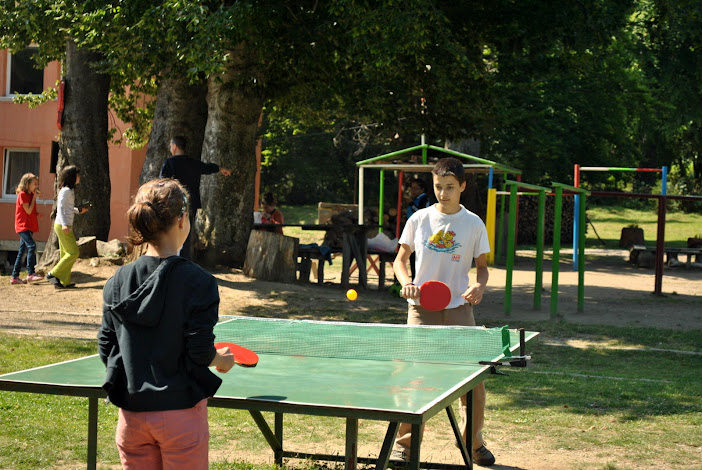
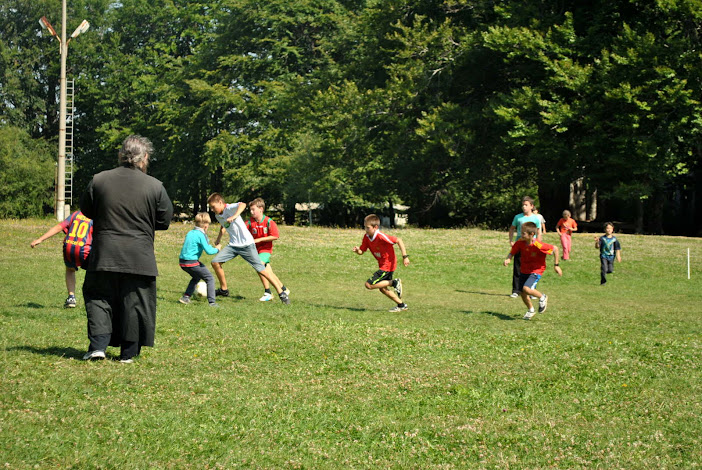
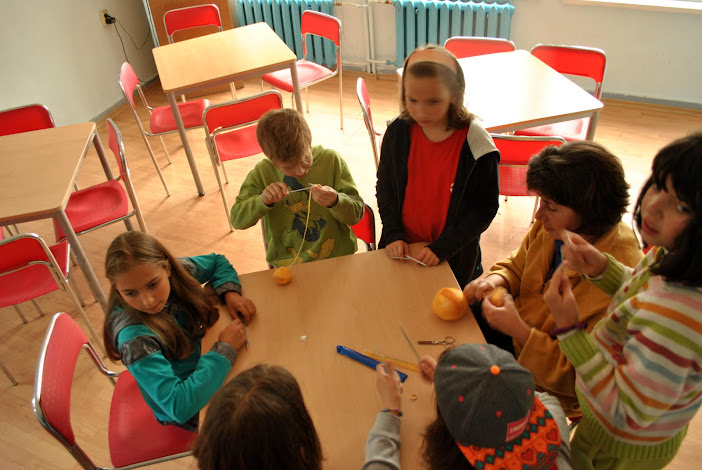
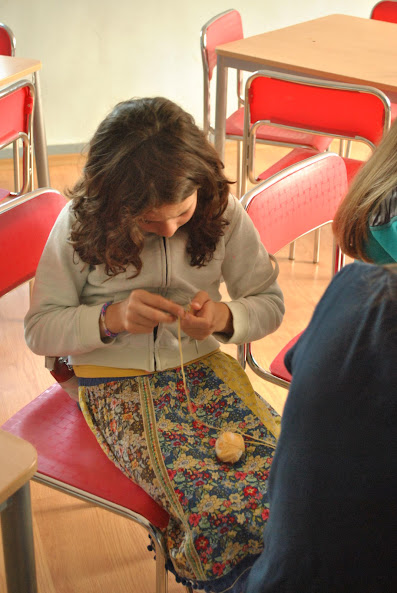
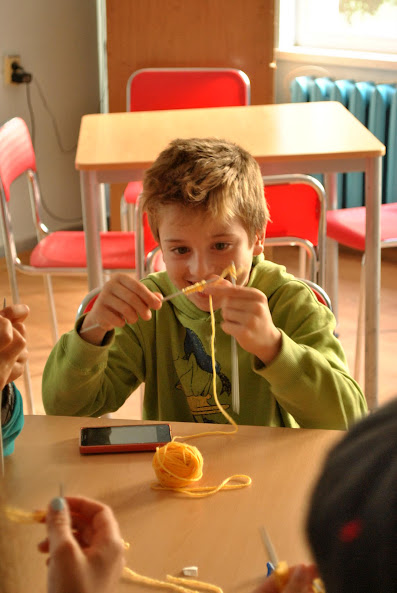



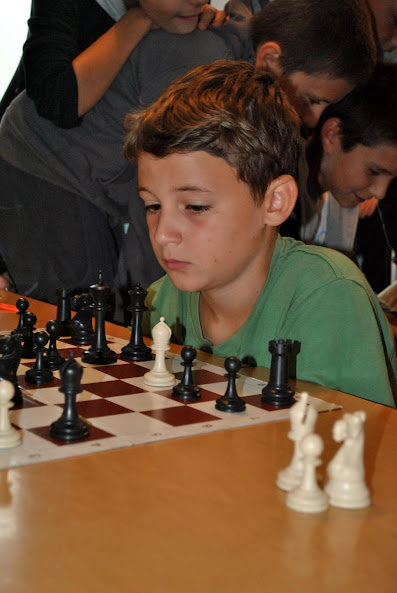
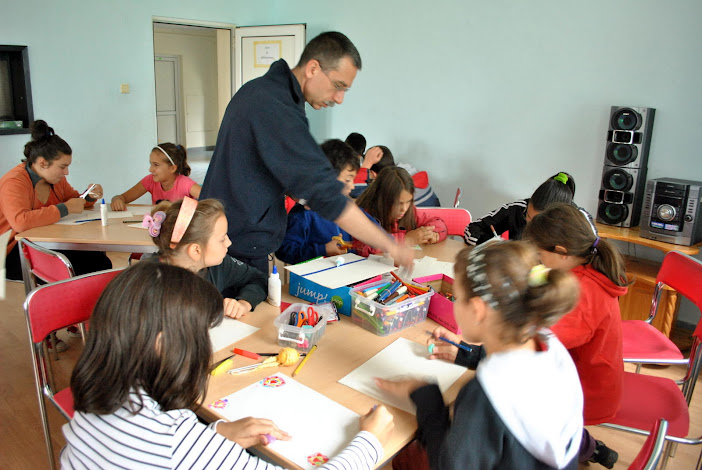
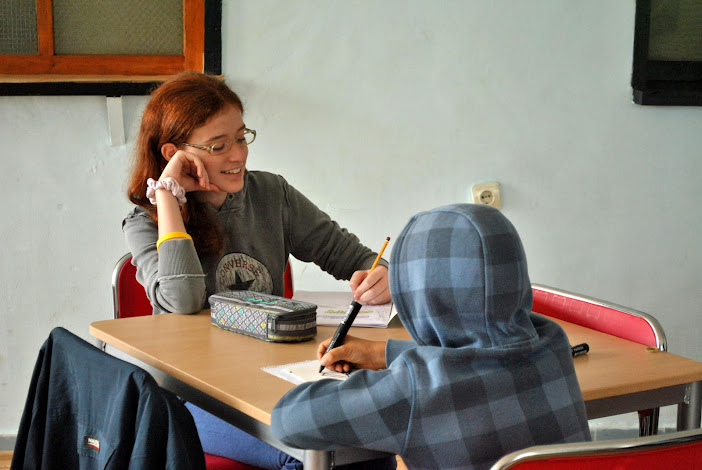
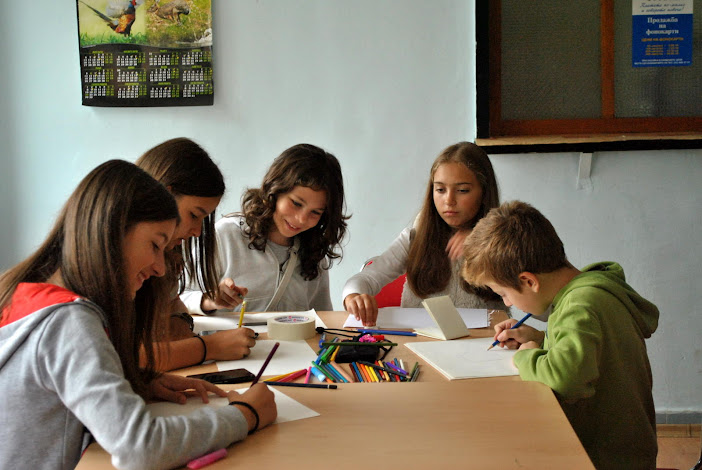
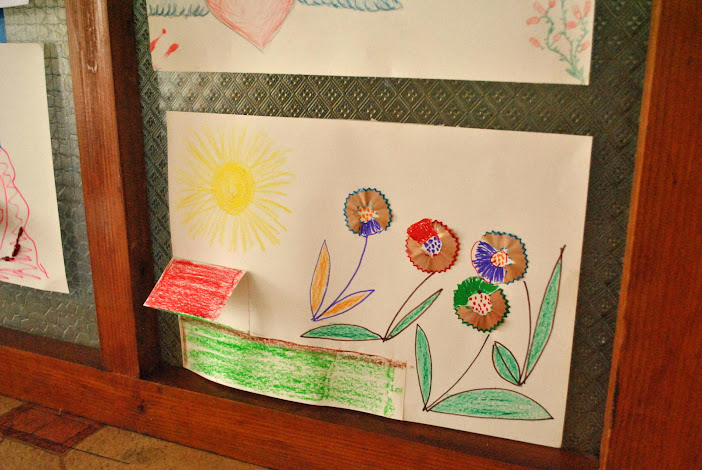
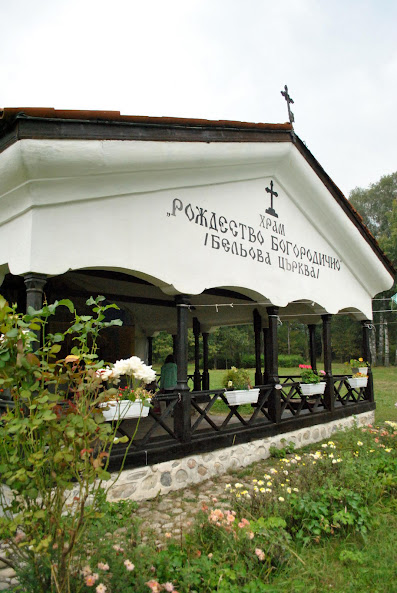


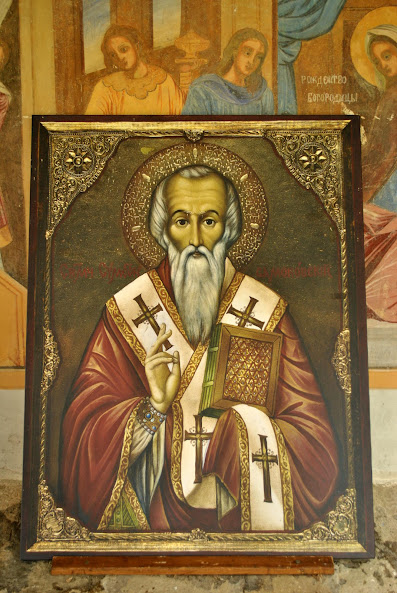

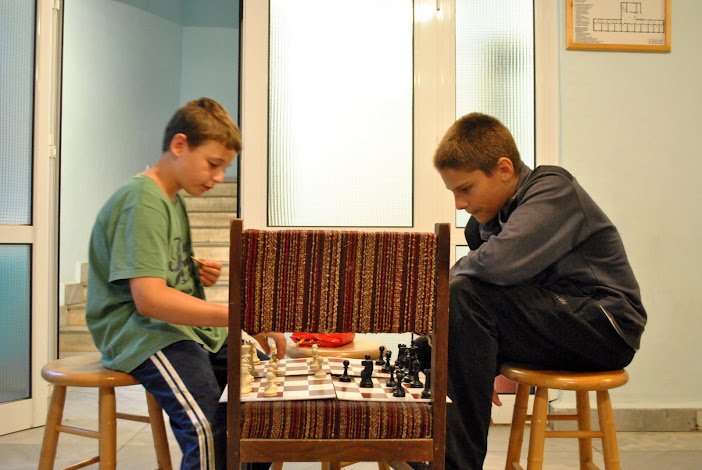

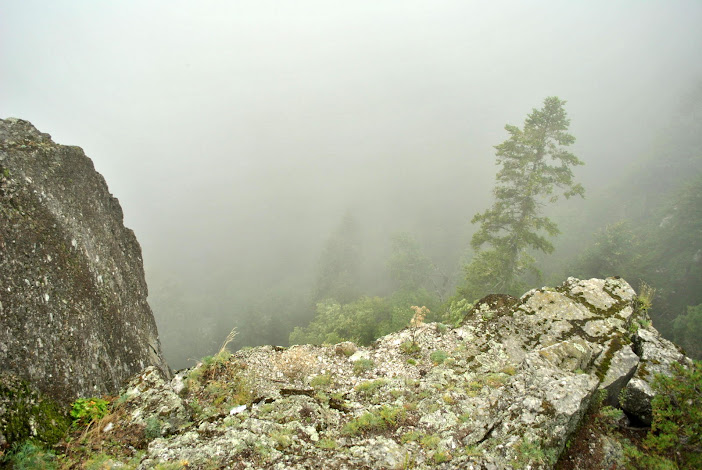
article found on:http://internetsobor.org
Orthodox children's camp in Bulgaria Old Calendar
Church, under Vladyka Bishop Foti of Triaditsa
Author: Vera nun incl. September 19, 2014. Posted in Bulgarian Old Church (Views: 3) In
early September 2014 in the Old Calendar Bulgaria at Sofia Holy
Dormition Cathedral, was organized an Orthodox children's camp.
In
early September 2014 in the Old Calendar Bulgaria at Sofia Holy
Dormition Cathedral, was organized an Orthodox children's camp.In Piraeus, Greece, was held a Synod Meeting of the GOC-Kallinikos Holy Synod of Bishops
article found on:http://internetsobor.org
Of our sister church to our ROCA:
 Thursday, September 18, 2014
Thursday, September 18, 2014
There was a Holy Synod meeting of the GOC, in Piraeus, Greece, under the chairmanship of Archbishop Kallinikos, who in welcoming all members of the Synod, stressed the importance of not stopping the fight in favor of the union of all healthy "fragments" of Orthodoxy and to care for piety and peace in the Church.

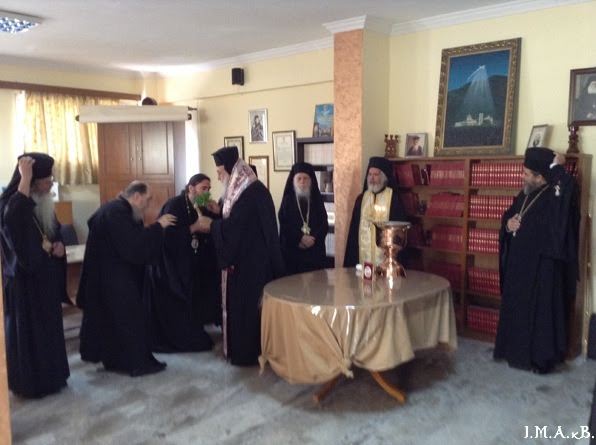

Of our sister church to our ROCA:
Held Holy Synod of the Bishops of the GOC, in Piraeus, Greece
Author: Vera nun incl. September 19, 2014. Posted in CPI Greece (Views: 19)
Tags: Synod CPI Greece , Piraeus
 Thursday, September 18, 2014
Thursday, September 18, 2014There was a Holy Synod meeting of the GOC, in Piraeus, Greece, under the chairmanship of Archbishop Kallinikos, who in welcoming all members of the Synod, stressed the importance of not stopping the fight in favor of the union of all healthy "fragments" of Orthodoxy and to care for piety and peace in the Church.
At the Synod meeting there, were also considered various internal matters of church life.



Thursday, September 18, 2014
Stickies
• A price of Putin's Unjust War on Ukraine: "Ukraine Crisis, Forgotten Death of A Russian Soldier"
The grief of a Russian mother and his whole family, over the loss of her soldier son.
• GOC- Bishop Ambrose of Methone, Visit to South Ossetia, in August
Wednesday, September 17, 2014
Video: Russian Sickness
Simply Sharing what was shared with me:
WATCH this to understand the level of Russia’s sickness.
There are some English subtitles to the microphone messages:
7 minutes
Published on Aug 9, 2014
Added Explanation of this event: This circus done in occupied Crimea, in praise of Putin, Watch the national sickness in Russia today-
This show was staged in the occupied Crimea on August 9, 2014 and was shown on the major Russian TV channel “Russia 2” nationwide. This is a very good example of how Russia brainwashes its citizens. It portrays Ukrainians as fascists. Isn't it ironic that fascists are portraying Ukrainians as fascists? Russia is still trying to tell its fairy tale that the “Right Sector” movement with 0.7% of supporters came to power in Ukraine (they even faked news about a victory of Right Sector candidate in Ukraine’s presidential elections:
https://www.youtube.com/watch?v=KuG2nqfIKN4
See faces in the crowd – they really believe in what they are shown. ½ minute
Also check out wolves howl at the very end of the show after the words “Vladimir Putin”.
By the way, it looks very much like those mechanical imperialist hands in the show were made by the same people who made mechanisms for the opening and closing ceremonies of 2014 winter Olympic Games in Russia. Olympic Games were helpful indeed.
See faces in the crowd – they really believe in what they are shown. ½ minute
Also check out wolves howl at the very end of the show after the words “Vladimir Putin”.
By the way, it looks very much like those mechanical imperialist hands in the show were made by the same people who made mechanisms for the opening and closing ceremonies of 2014 winter Olympic Games in Russia. Olympic Games were helpful indeed.
Monday, September 15, 2014
The SS Barack Obama ( his ship) Is Sinking Fast
Our present utterly incompetent leftist president is profoundly harming America, at home, and abroad.
If he will not freely resign the presidency of his own will, then he needs to be removed from office, and soon. God grant this.
U.S. and Nato Troops Begin Ukraine Military Exercise
And from other sources: Some western governments are quietly sending heavy and substantial military aid
to the Ukrainians, FINALLY, but this is not an official NATO program,
but rather of the individual NATO member nations...which is their right
to so do. And for public consumption, some spokesmen of these
governments are denying this...politics!
IT IS OVERDUE, that the west actually helps Ukraine to militarily [the only way that KGB Dictator, the Thug, V. Putin and his Kremlin gangsters understand]. repulse this Putin's Russian Federation aggression against their country.
GOD BLESS A FREE UKRAINE!...and one day, a truly free Russia too!
Vladimir Putin's unwarranted and immoral and murderous invasion of Ukraine, has brought together and united the native peoples there, [of all the many varied ethnic and religious heritages] as nothing else has been able to do, makes Vladimir Vladimirovich Putin, THE FOUNDER of A MODERN UNIFIED UKRAINE!
Putin has thus, made sure, that Ukraine will NEVER desire to be a part of any Russia.
Too much blood has now been spilled, too many murdered, too much destruction and hate, hate, hate.
"God works in mysterious ways, His wonder to perform!"
IT IS OVERDUE, that the west actually helps Ukraine to militarily [the only way that KGB Dictator, the Thug, V. Putin and his Kremlin gangsters understand]. repulse this Putin's Russian Federation aggression against their country.
GOD BLESS A FREE UKRAINE!...and one day, a truly free Russia too!
Vladimir Putin's unwarranted and immoral and murderous invasion of Ukraine, has brought together and united the native peoples there, [of all the many varied ethnic and religious heritages] as nothing else has been able to do, makes Vladimir Vladimirovich Putin, THE FOUNDER of A MODERN UNIFIED UKRAINE!
Putin has thus, made sure, that Ukraine will NEVER desire to be a part of any Russia.
Too much blood has now been spilled, too many murdered, too much destruction and hate, hate, hate.
"God works in mysterious ways, His wonder to perform!"
Sunday, September 14, 2014
for study: Some of the complicated background to what is now happening in the Mid-East
About Wahhabi Islam:
http://atheism.about.com/od/
The Saudi Arabian Wahhabi-Islamic Connection to ISIS., etc.:
http://atheism.about.com/od/
The Saudi Arabian Wahhabi-Islamic Connection to ISIS., etc.:
PART II
You can't Understand ISIS If You Don't Know the History of Wahhabism in Saudi Arabia
Abd al-Wahhab demanded conformity -- a conformity that was to be demonstrated in physical and tangible ways. He argued that all Muslims must individually pledge their allegiance to a single Muslim leader (a Caliph, if there were one). Those who would not conform to this view should be killed, their wives and daughters violated, and their possessions confiscated, he wrote. The list of apostates meriting death included the Shiite, Sufis and other Muslim denominations, whom Abd al-Wahhab did not consider to be Muslim at all.
There is nothing here that separates Wahhabism from ISIS. The rift would emerge only later: from the subsequent institutionalization of Muhammad ibn ʿAbd al-Wahhab's doctrine of "One Ruler, One Authority, One Mosque" -- these three pillars being taken respectively to refer to the Saudi king, the absolute authority of official Wahhabism, and its control of "the word" (i.e. the mosque).
It is this rift -- the ISIS denial of these three pillars on which the whole of Sunni authority presently rests -- makes ISIS, which in all other respects conforms to Wahhabism, a deep threat to Saudi Arabia.
BRIEF HISTORY 1741- 1818
Abd al-Wahhab's advocacy of these ultra radical views inevitably led to his expulsion from his own town -- and in 1741, after some wanderings, he found refuge under the protection of Ibn Saud and his tribe. What Ibn Saud perceived in Abd al-Wahhab's novel teaching was the means to overturn Arab tradition and convention. It was a path to seizing power.
Ibn Saud's clan, seizing on Abd al-Wahhab's doctrine, now could do what they always did, which was raiding neighboring villages and robbing them of their possessions. Only now they were doing it not within the ambit of Arab tradition, but rather under the banner of jihad. Ibn Saud and Abd al-Wahhab also reintroduced the idea of martyrdom in the name of jihad, as it granted those martyred immediate entry into paradise.
In the beginning, they conquered a few local communities and imposed their rule over them. (The conquered inhabitants were given a limited choice: conversion to Wahhabism or death.) By 1790, the Alliance controlled most of the Arabian Peninsula and repeatedly raided Medina, Syria and Iraq.
Their strategy -- like that of ISIS today -- was to bring the peoples whom they conquered into submission. They aimed to instill fear. In 1801, the Allies attacked the Holy City of Karbala in Iraq. They massacred thousands of Shiites, including women and children. Many Shiite shrines were destroyed, including the shrine of Imam Hussein, the murdered grandson of Prophet Muhammad.
A British official, Lieutenant Francis Warden, observing the situation at the time, wrote: "They pillaged the whole of it [Karbala], and plundered the Tomb of Hussein... slaying in the course of the day, with circumstances of peculiar cruelty, above five thousand of the inhabitants ..."
Osman Ibn Bishr Najdi, the historian of the first Saudi state, wrote that Ibn Saud committed a massacre in Karbala in 1801. He proudly documented that massacre saying, "we took Karbala and slaughtered and took its people (as slaves), then praise be to Allah, Lord of the Worlds, and we do not apologize for that and say: 'And to the unbelievers: the same treatment.'"
In 1803, Abdul Aziz then entered the Holy City of Mecca, which surrendered under the impact of terror and panic (the same fate was to befall Medina, too). Abd al-Wahhab's followers demolished historical monuments and all the tombs and shrines in their midst. By the end, they had destroyed centuries of Islamic architecture near the Grand Mosque.
But in November of 1803, a Shiite assassin killed King Abdul Aziz (taking revenge for the massacre at Karbala). His son, Saud bin Abd al Aziz, succeeded him and continued the conquest of Arabia. Ottoman rulers, however, could no longer just sit back and watch as their empire was devoured piece by piece. In 1812, the Ottoman army, composed of Egyptians, pushed the Alliance out from Medina, Jeddah and Mecca. In 1814, Saud bin Abd al Aziz died of fever. His unfortunate son Abdullah bin Saud, however, was taken by the Ottomans to Istanbul, where he was gruesomely executed (a visitor to Istanbul reported seeing him having been humiliated in the streets of Istanbul for three days, then hanged and beheaded, his severed head fired from a canon, and his heart cut out and impaled on his body).
In 1815, Wahhabi forces were crushed by the Egyptians (acting on the Ottoman's behalf) in a decisive battle. In 1818, the Ottomans captured and destroyed the Wahhabi capital of Dariyah. The first Saudi state was no more. The few remaining Wahhabis withdrew into the desert to regroup, and there they remained, quiescent for most of the 19th century.
HISTORY RETURNS WITH ISIS
It is not hard to understand how the founding of the Islamic State by ISIS in contemporary Iraq might resonate amongst those who recall this history. Indeed, the ethos of 18th century Wahhabism did not just wither in Nejd, but it roared back into life when the Ottoman Empire collapsed amongst the chaos of World War I.
The Al Saud -- in this 20th century renaissance -- were led by the laconic and politically astute Abd-al Aziz, who, on uniting the fractious Bedouin tribes, launched the Saudi "Ikhwan" in the spirit of Abd-al Wahhab's and Ibn Saud's earlier fighting proselytisers.
The Ikhwan was a reincarnation of the early, fierce, semi-independent vanguard movement of committed armed Wahhabist "moralists" who almost had succeeded in seizing Arabia by the early 1800s. In the same manner as earlier, the Ikhwan again succeeded in capturing Mecca, Medina and Jeddah between 1914 and 1926. Abd-al Aziz, however, began to feel his wider interests to be threatened by the revolutionary "Jacobinism" exhibited by the Ikhwan. The Ikhwan revolted -- leading to a civil war that lasted until the 1930s, when the King had them put down: he machine-gunned them.
For this king, (Abd-al Aziz), the simple verities of previous decades were eroding. Oil was being discovered in the peninsular. Britain and America were courting Abd-al Aziz, but still were inclined to support Sharif Husain as the only legitimate ruler of Arabia. The Saudis needed to develop a more sophisticated diplomatic posture.
So Wahhabism was forcefully changed from a movement of revolutionary jihad and theological takfiri purification, to a movement of conservative social, political, theological, and religious da'wa (Islamic call) and to justifying the institution that upholds loyalty to the royal Saudi family and the King's absolute power.
OIL WEALTH SPREAD WAHHABISM
With the advent of the oil bonanza -- as the French scholar, Giles Kepel writes, Saudi goals were to "reach out and spread Wahhabism across the Muslim world ... to "Wahhabise" Islam, thereby reducing the "multitude of voices within the religion" to a "single creed" -- a movement which would transcend national divisions. Billions of dollars were -- and continue to be -- invested in this manifestation of soft power.
It was this heady mix of billion dollar soft power projection -- and the Saudi willingness to manage Sunni Islam both to further America's interests, as it concomitantly embedded Wahhabism educationally, socially and culturally throughout the lands of Islam -- that brought into being a western policy dependency on Saudi Arabia, a dependency that has endured since Abd-al Aziz's meeting with Roosevelt on a U.S. warship (returning the president from the Yalta Conference) until today.
Westerners looked at the Kingdom and their gaze was taken by the wealth; by the apparent modernization; by the professed leadership of the Islamic world. They chose to presume that the Kingdom was bending to the imperatives of modern life -- and that the management of Sunni Islam would bend the Kingdom, too, to modern life.
But the Saudi Ikhwan approach to Islam did not die in the 1930s. It retreated, but it maintained its hold over parts of the system -- hence the duality that we observe today in the Saudi attitude towards ISIS.
On the one hand, ISIS is deeply Wahhabist. On the other hand, it is ultra radical in a different way. It could be seen essentially as a corrective movement to contemporary Wahhabism.
ISIS is a "post-Medina" movement: it looks to the actions of the first two Caliphs, rather than the Prophet Muhammad himself, as a source of emulation, and it forcefully denies the Saudis' claim of authority to rule.
As the Saudi monarchy blossomed in the oil age into an ever more inflated institution, the appeal of the Ikhwan message gained ground (despite King Faisal's modernization campaign). The "Ikhwan approach" enjoyed -- and still enjoys -- the support of many prominent men and women and sheikhs. In a sense, Osama bin Laden was precisely the representative of a late flowering of this Ikhwani approach.
Today, ISIS' undermining of the legitimacy of the King's legitimacy is not seen to be problematic, but rather a return to the true origins of the Saudi-Wahhab project.
In the collaborative management of the region by the Saudis and the West in pursuit of the many western projects (countering socialism, Ba'athism, Nasserism, Soviet and Iranian influence), western politicians have highlighted their chosen reading of Saudi Arabia (wealth, modernization and influence), but they chose to ignore the Wahhabist impulse.
After all, the more radical Islamist movements were perceived by Western intelligence services as being more effective in toppling the USSR in Afghanistan -- and in combatting out-of-favor Middle Eastern leaders and states.
Why should we be surprised then, that from Prince Bandar's Saudi-Western mandate to manage the insurgency in Syria against President Assad should have emerged a neo-Ikhwan type of violent, fear-inducing vanguard movement: ISIS? And why should we be surprised -- knowing a little about Wahhabism -- that "moderate" insurgents in Syria would become rarer than a mythical unicorn? Why should we have imagined that radical Wahhabism would create moderates? Or why could we imagine that a doctrine of "One leader, One authority, One mosque: submit to it, or be killed" could ever ultimately lead to moderation or tolerance?
Or, perhaps, we never imagined.
This article is Part I of Alastair Crooke's historical analysis of the roots of ISIS and its impact on the future of the Middle East. Read Part II here
Posted: 08/27/2014 11:56 am EDT Updated: 09/05/2014 5:59 pm EDT
BEIRUT -- The dramatic arrival of Da'ish (ISIS) on the stage of Iraq has shocked many in the West. Many have been perplexed -- and horrified -- by its violence and its evident magnetism for Sunni youth. But more than this, they find Saudi Arabia's ambivalence in the face of this manifestation both troubling and inexplicable, wondering, "Don't the Saudis understand that ISIS threatens them, too?"
BEIRUT -- The dramatic arrival of Da'ish (ISIS) on the stage of Iraq has shocked many in the West. Many have been perplexed -- and horrified -- by its violence and its evident magnetism for Sunni youth. But more than this, they find Saudi Arabia's ambivalence in the face of this manifestation both troubling and inexplicable, wondering, "Don't the Saudis understand that ISIS threatens them, too?"
It
appears -- even now -- that Saudi Arabia's ruling elite is divided.
Some applaud that ISIS is fighting Iranian Shiite "fire" with Sunni
"fire"; that a new Sunni state is taking shape at the very heart of what
they regard as a historical Sunni patrimony; and they are drawn by
Da'ish's strict Salafist ideology.
Other Saudis are more fearful, and recall the history of the revolt against Abd-al Aziz by the Wahhabist Ikhwan (Disclaimer: this Ikhwan has nothing to do with the Muslim Brotherhood Ikhwan -- please note, all further references hereafter are to the Wahhabist Ikhwan, and not to the Muslim Brotherhood Ikhwan), but which nearly imploded Wahhabism and the al-Saud in the late 1920s.
Many Saudis are deeply disturbed by the radical doctrines of Da'ish (ISIS) -- and are beginning to question some aspects of Saudi Arabia's direction and discourse.
THE SAUDI DUALITY
Saudi Arabia's internal discord and tensions over ISIS can only be understood by grasping the inherent (and persisting) duality that lies at the core of the Kingdom's doctrinal makeup and its historical origins.
One dominant strand to the Saudi identity pertains directly to Muhammad ibn ʿAbd al-Wahhab (the founder of Wahhabism), and the use to which his radical, exclusionist puritanism was put by Ibn Saud. (The latter was then no more than a minor leader -- amongst many -- of continually sparring and raiding Bedouin tribes in the baking and desperately poor deserts of the Nejd.)
The second strand to this perplexing duality, relates precisely to King Abd-al Aziz's subsequent shift towards statehood in the 1920s: his curbing of Ikhwani violence (in order to have diplomatic standing as a nation-state with Britain and America); his institutionalization of the original Wahhabist impulse -- and the subsequent seizing of the opportunely surging petrodollar spigot in the 1970s, to channel the volatile Ikhwani current away from home towards export -- by diffusing a cultural revolution, rather than violent revolution throughout the Muslim world.
But this "cultural revolution" was no docile reformism. It was a revolution based on Abd al-Wahhab's Jacobin-like hatred for the putrescence and deviationism that he perceived all about him -- hence his call to purge Islam of all its heresies and idolatries.
MUSLIM IMPOSTORS
The American author and journalist, Steven Coll, has written how this austere and censorious disciple of the 14th century scholar Ibn Taymiyyah, Abd al-Wahhab, despised "the decorous, arty, tobacco smoking, hashish imbibing, drum pounding Egyptian and Ottoman nobility who travelled across Arabia to pray at Mecca."
In Abd al-Wahhab's view, these were not Muslims; they were imposters masquerading as Muslims. Nor, indeed, did he find the behavior of local Bedouin Arabs much better. They aggravated Abd al-Wahhab by their honoring of saints, by their erecting of tombstones, and their "superstition" (e.g. revering graves or places that were deemed particularly imbued with the divine).
All this behavior, Abd al-Wahhab denounced as bida -- forbidden by God.
Like Taymiyyah before him, Abd al-Wahhab believed that the period of the Prophet Muhammad's stay in Medina was the ideal of Muslim society (the "best of times"), to which all Muslims should aspire to emulate (this, essentially, is Salafism).
Taymiyyah had declared war on Shi'ism, Sufism and Greek philosophy. He spoke out, too against visiting the grave of the prophet and the celebration of his birthday, declaring that all such behavior represented mere imitation of the Christian worship of Jesus as God (i.e. idolatry). Abd al-Wahhab assimilated all this earlier teaching, stating that "any doubt or hesitation" on the part of a believer in respect to his or her acknowledging this particular interpretation of Islam should "deprive a man of immunity of his property and his life."
One of the main tenets of Abd al-Wahhab's doctrine has become the key idea of takfir. Under the takfiri doctrine, Abd al-Wahhab and his followers could deem fellow Muslims infidels should they engage in activities that in any way could be said to encroach on the sovereignty of the absolute Authority (that is, the King). Abd al-Wahhab denounced all Muslims who honored the dead, saints, or angels. He held that such sentiments detracted from the complete subservience one must feel towards God, and only God. Wahhabi Islam thus bans any prayer to saints and dead loved ones, pilgrimages to tombs and special mosques, religious festivals celebrating saints, the honoring of the Muslim Prophet Muhammad's birthday, and even prohibits the use of gravestones when burying the dead.
Other Saudis are more fearful, and recall the history of the revolt against Abd-al Aziz by the Wahhabist Ikhwan (Disclaimer: this Ikhwan has nothing to do with the Muslim Brotherhood Ikhwan -- please note, all further references hereafter are to the Wahhabist Ikhwan, and not to the Muslim Brotherhood Ikhwan), but which nearly imploded Wahhabism and the al-Saud in the late 1920s.
Many Saudis are deeply disturbed by the radical doctrines of Da'ish (ISIS) -- and are beginning to question some aspects of Saudi Arabia's direction and discourse.
THE SAUDI DUALITY
Saudi Arabia's internal discord and tensions over ISIS can only be understood by grasping the inherent (and persisting) duality that lies at the core of the Kingdom's doctrinal makeup and its historical origins.
One dominant strand to the Saudi identity pertains directly to Muhammad ibn ʿAbd al-Wahhab (the founder of Wahhabism), and the use to which his radical, exclusionist puritanism was put by Ibn Saud. (The latter was then no more than a minor leader -- amongst many -- of continually sparring and raiding Bedouin tribes in the baking and desperately poor deserts of the Nejd.)
The second strand to this perplexing duality, relates precisely to King Abd-al Aziz's subsequent shift towards statehood in the 1920s: his curbing of Ikhwani violence (in order to have diplomatic standing as a nation-state with Britain and America); his institutionalization of the original Wahhabist impulse -- and the subsequent seizing of the opportunely surging petrodollar spigot in the 1970s, to channel the volatile Ikhwani current away from home towards export -- by diffusing a cultural revolution, rather than violent revolution throughout the Muslim world.
But this "cultural revolution" was no docile reformism. It was a revolution based on Abd al-Wahhab's Jacobin-like hatred for the putrescence and deviationism that he perceived all about him -- hence his call to purge Islam of all its heresies and idolatries.
MUSLIM IMPOSTORS
The American author and journalist, Steven Coll, has written how this austere and censorious disciple of the 14th century scholar Ibn Taymiyyah, Abd al-Wahhab, despised "the decorous, arty, tobacco smoking, hashish imbibing, drum pounding Egyptian and Ottoman nobility who travelled across Arabia to pray at Mecca."
In Abd al-Wahhab's view, these were not Muslims; they were imposters masquerading as Muslims. Nor, indeed, did he find the behavior of local Bedouin Arabs much better. They aggravated Abd al-Wahhab by their honoring of saints, by their erecting of tombstones, and their "superstition" (e.g. revering graves or places that were deemed particularly imbued with the divine).
All this behavior, Abd al-Wahhab denounced as bida -- forbidden by God.
Like Taymiyyah before him, Abd al-Wahhab believed that the period of the Prophet Muhammad's stay in Medina was the ideal of Muslim society (the "best of times"), to which all Muslims should aspire to emulate (this, essentially, is Salafism).
Taymiyyah had declared war on Shi'ism, Sufism and Greek philosophy. He spoke out, too against visiting the grave of the prophet and the celebration of his birthday, declaring that all such behavior represented mere imitation of the Christian worship of Jesus as God (i.e. idolatry). Abd al-Wahhab assimilated all this earlier teaching, stating that "any doubt or hesitation" on the part of a believer in respect to his or her acknowledging this particular interpretation of Islam should "deprive a man of immunity of his property and his life."
One of the main tenets of Abd al-Wahhab's doctrine has become the key idea of takfir. Under the takfiri doctrine, Abd al-Wahhab and his followers could deem fellow Muslims infidels should they engage in activities that in any way could be said to encroach on the sovereignty of the absolute Authority (that is, the King). Abd al-Wahhab denounced all Muslims who honored the dead, saints, or angels. He held that such sentiments detracted from the complete subservience one must feel towards God, and only God. Wahhabi Islam thus bans any prayer to saints and dead loved ones, pilgrimages to tombs and special mosques, religious festivals celebrating saints, the honoring of the Muslim Prophet Muhammad's birthday, and even prohibits the use of gravestones when burying the dead.
"Those who would not conform to this view should be killed, their wives and daughters violated, and their possessions confiscated, he wrote. "
Abd al-Wahhab demanded conformity -- a conformity that was to be demonstrated in physical and tangible ways. He argued that all Muslims must individually pledge their allegiance to a single Muslim leader (a Caliph, if there were one). Those who would not conform to this view should be killed, their wives and daughters violated, and their possessions confiscated, he wrote. The list of apostates meriting death included the Shiite, Sufis and other Muslim denominations, whom Abd al-Wahhab did not consider to be Muslim at all.
There is nothing here that separates Wahhabism from ISIS. The rift would emerge only later: from the subsequent institutionalization of Muhammad ibn ʿAbd al-Wahhab's doctrine of "One Ruler, One Authority, One Mosque" -- these three pillars being taken respectively to refer to the Saudi king, the absolute authority of official Wahhabism, and its control of "the word" (i.e. the mosque).
It is this rift -- the ISIS denial of these three pillars on which the whole of Sunni authority presently rests -- makes ISIS, which in all other respects conforms to Wahhabism, a deep threat to Saudi Arabia.
BRIEF HISTORY 1741- 1818
Abd al-Wahhab's advocacy of these ultra radical views inevitably led to his expulsion from his own town -- and in 1741, after some wanderings, he found refuge under the protection of Ibn Saud and his tribe. What Ibn Saud perceived in Abd al-Wahhab's novel teaching was the means to overturn Arab tradition and convention. It was a path to seizing power.
"Their strategy -- like that of ISIS today -- was to bring the peoples whom they conquered into submission. They aimed to instill fear. "
Ibn Saud's clan, seizing on Abd al-Wahhab's doctrine, now could do what they always did, which was raiding neighboring villages and robbing them of their possessions. Only now they were doing it not within the ambit of Arab tradition, but rather under the banner of jihad. Ibn Saud and Abd al-Wahhab also reintroduced the idea of martyrdom in the name of jihad, as it granted those martyred immediate entry into paradise.
In the beginning, they conquered a few local communities and imposed their rule over them. (The conquered inhabitants were given a limited choice: conversion to Wahhabism or death.) By 1790, the Alliance controlled most of the Arabian Peninsula and repeatedly raided Medina, Syria and Iraq.
Their strategy -- like that of ISIS today -- was to bring the peoples whom they conquered into submission. They aimed to instill fear. In 1801, the Allies attacked the Holy City of Karbala in Iraq. They massacred thousands of Shiites, including women and children. Many Shiite shrines were destroyed, including the shrine of Imam Hussein, the murdered grandson of Prophet Muhammad.
A British official, Lieutenant Francis Warden, observing the situation at the time, wrote: "They pillaged the whole of it [Karbala], and plundered the Tomb of Hussein... slaying in the course of the day, with circumstances of peculiar cruelty, above five thousand of the inhabitants ..."
Osman Ibn Bishr Najdi, the historian of the first Saudi state, wrote that Ibn Saud committed a massacre in Karbala in 1801. He proudly documented that massacre saying, "we took Karbala and slaughtered and took its people (as slaves), then praise be to Allah, Lord of the Worlds, and we do not apologize for that and say: 'And to the unbelievers: the same treatment.'"
In 1803, Abdul Aziz then entered the Holy City of Mecca, which surrendered under the impact of terror and panic (the same fate was to befall Medina, too). Abd al-Wahhab's followers demolished historical monuments and all the tombs and shrines in their midst. By the end, they had destroyed centuries of Islamic architecture near the Grand Mosque.
But in November of 1803, a Shiite assassin killed King Abdul Aziz (taking revenge for the massacre at Karbala). His son, Saud bin Abd al Aziz, succeeded him and continued the conquest of Arabia. Ottoman rulers, however, could no longer just sit back and watch as their empire was devoured piece by piece. In 1812, the Ottoman army, composed of Egyptians, pushed the Alliance out from Medina, Jeddah and Mecca. In 1814, Saud bin Abd al Aziz died of fever. His unfortunate son Abdullah bin Saud, however, was taken by the Ottomans to Istanbul, where he was gruesomely executed (a visitor to Istanbul reported seeing him having been humiliated in the streets of Istanbul for three days, then hanged and beheaded, his severed head fired from a canon, and his heart cut out and impaled on his body).
In 1815, Wahhabi forces were crushed by the Egyptians (acting on the Ottoman's behalf) in a decisive battle. In 1818, the Ottomans captured and destroyed the Wahhabi capital of Dariyah. The first Saudi state was no more. The few remaining Wahhabis withdrew into the desert to regroup, and there they remained, quiescent for most of the 19th century.
HISTORY RETURNS WITH ISIS
It is not hard to understand how the founding of the Islamic State by ISIS in contemporary Iraq might resonate amongst those who recall this history. Indeed, the ethos of 18th century Wahhabism did not just wither in Nejd, but it roared back into life when the Ottoman Empire collapsed amongst the chaos of World War I.
The Al Saud -- in this 20th century renaissance -- were led by the laconic and politically astute Abd-al Aziz, who, on uniting the fractious Bedouin tribes, launched the Saudi "Ikhwan" in the spirit of Abd-al Wahhab's and Ibn Saud's earlier fighting proselytisers.
The Ikhwan was a reincarnation of the early, fierce, semi-independent vanguard movement of committed armed Wahhabist "moralists" who almost had succeeded in seizing Arabia by the early 1800s. In the same manner as earlier, the Ikhwan again succeeded in capturing Mecca, Medina and Jeddah between 1914 and 1926. Abd-al Aziz, however, began to feel his wider interests to be threatened by the revolutionary "Jacobinism" exhibited by the Ikhwan. The Ikhwan revolted -- leading to a civil war that lasted until the 1930s, when the King had them put down: he machine-gunned them.
For this king, (Abd-al Aziz), the simple verities of previous decades were eroding. Oil was being discovered in the peninsular. Britain and America were courting Abd-al Aziz, but still were inclined to support Sharif Husain as the only legitimate ruler of Arabia. The Saudis needed to develop a more sophisticated diplomatic posture.
So Wahhabism was forcefully changed from a movement of revolutionary jihad and theological takfiri purification, to a movement of conservative social, political, theological, and religious da'wa (Islamic call) and to justifying the institution that upholds loyalty to the royal Saudi family and the King's absolute power.
OIL WEALTH SPREAD WAHHABISM
With the advent of the oil bonanza -- as the French scholar, Giles Kepel writes, Saudi goals were to "reach out and spread Wahhabism across the Muslim world ... to "Wahhabise" Islam, thereby reducing the "multitude of voices within the religion" to a "single creed" -- a movement which would transcend national divisions. Billions of dollars were -- and continue to be -- invested in this manifestation of soft power.
It was this heady mix of billion dollar soft power projection -- and the Saudi willingness to manage Sunni Islam both to further America's interests, as it concomitantly embedded Wahhabism educationally, socially and culturally throughout the lands of Islam -- that brought into being a western policy dependency on Saudi Arabia, a dependency that has endured since Abd-al Aziz's meeting with Roosevelt on a U.S. warship (returning the president from the Yalta Conference) until today.
Westerners looked at the Kingdom and their gaze was taken by the wealth; by the apparent modernization; by the professed leadership of the Islamic world. They chose to presume that the Kingdom was bending to the imperatives of modern life -- and that the management of Sunni Islam would bend the Kingdom, too, to modern life.
"On the one hand, ISIS is deeply Wahhabist. On the other hand, it is ultra radical in a different way. It could be seen essentially as a corrective movement to contemporary Wahhabism."
But the Saudi Ikhwan approach to Islam did not die in the 1930s. It retreated, but it maintained its hold over parts of the system -- hence the duality that we observe today in the Saudi attitude towards ISIS.
On the one hand, ISIS is deeply Wahhabist. On the other hand, it is ultra radical in a different way. It could be seen essentially as a corrective movement to contemporary Wahhabism.
ISIS is a "post-Medina" movement: it looks to the actions of the first two Caliphs, rather than the Prophet Muhammad himself, as a source of emulation, and it forcefully denies the Saudis' claim of authority to rule.
As the Saudi monarchy blossomed in the oil age into an ever more inflated institution, the appeal of the Ikhwan message gained ground (despite King Faisal's modernization campaign). The "Ikhwan approach" enjoyed -- and still enjoys -- the support of many prominent men and women and sheikhs. In a sense, Osama bin Laden was precisely the representative of a late flowering of this Ikhwani approach.
Today, ISIS' undermining of the legitimacy of the King's legitimacy is not seen to be problematic, but rather a return to the true origins of the Saudi-Wahhab project.
In the collaborative management of the region by the Saudis and the West in pursuit of the many western projects (countering socialism, Ba'athism, Nasserism, Soviet and Iranian influence), western politicians have highlighted their chosen reading of Saudi Arabia (wealth, modernization and influence), but they chose to ignore the Wahhabist impulse.
After all, the more radical Islamist movements were perceived by Western intelligence services as being more effective in toppling the USSR in Afghanistan -- and in combatting out-of-favor Middle Eastern leaders and states.
Why should we be surprised then, that from Prince Bandar's Saudi-Western mandate to manage the insurgency in Syria against President Assad should have emerged a neo-Ikhwan type of violent, fear-inducing vanguard movement: ISIS? And why should we be surprised -- knowing a little about Wahhabism -- that "moderate" insurgents in Syria would become rarer than a mythical unicorn? Why should we have imagined that radical Wahhabism would create moderates? Or why could we imagine that a doctrine of "One leader, One authority, One mosque: submit to it, or be killed" could ever ultimately lead to moderation or tolerance?
Or, perhaps, we never imagined.
This article is Part I of Alastair Crooke's historical analysis of the roots of ISIS and its impact on the future of the Middle East. Read Part II here
Subscribe to:
Posts (Atom)
















